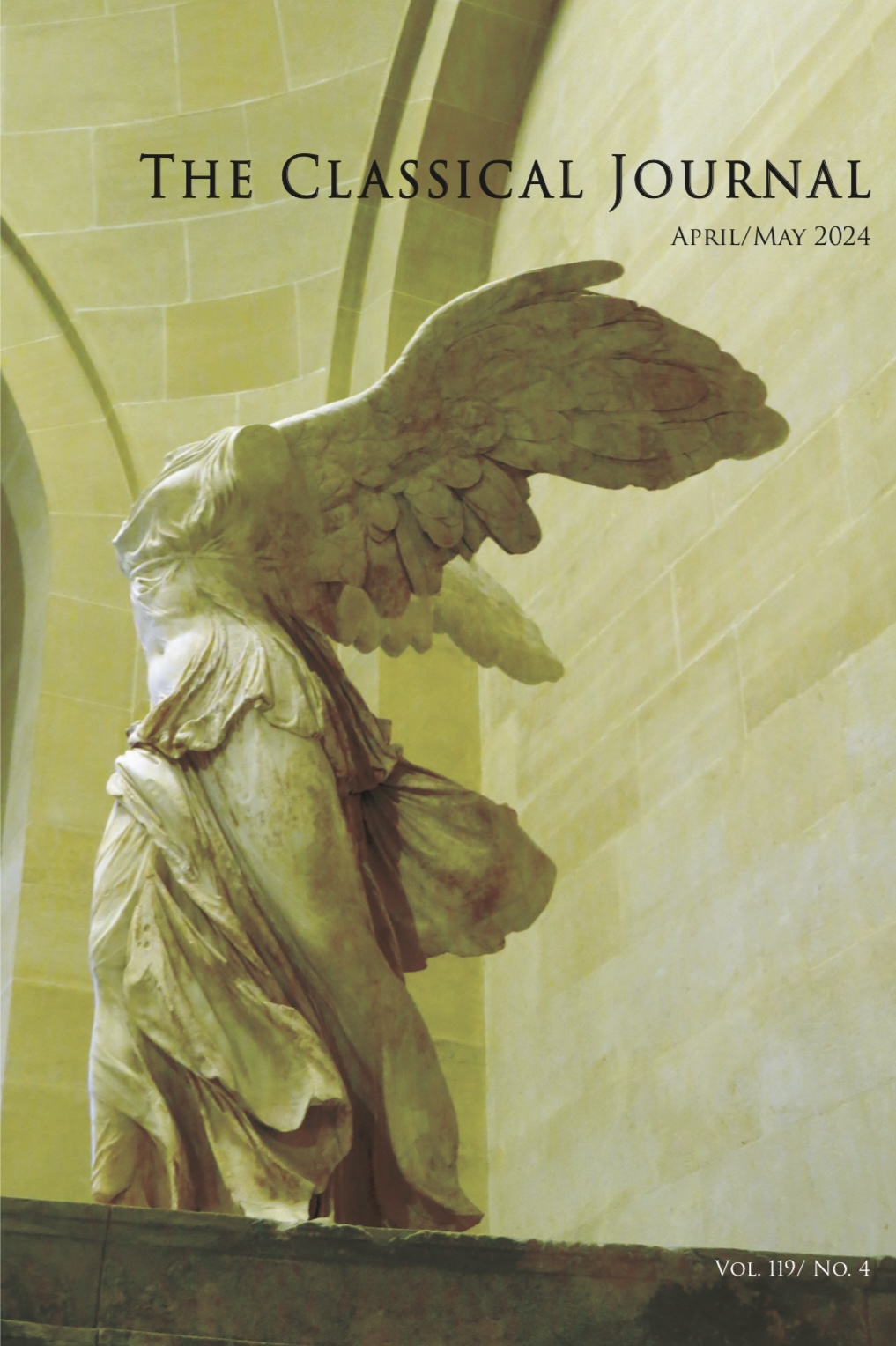The following articles are contained in CJ
113.4
Abstracts of Articles
IF YOU’LL BE MY BODYGUARD: SIMONIDES THE MERCENARY IN XENOPHON’S HIERON
All of Xenophon’s works contemplate the nature of leadership, but the Hieron is unique in how rigorously it engages with the problem of the leader’s self-interest. Hieron dwells on his personal finances and mistrust in the loyalty of others, which spoil his security and happiness. These problems are exemplified and exacerbated by his reliance on a mercenary bodyguard. Xenophon’s choice of Simonides as Hieron’s interlocutor can be explained through Simonides’ reputation for self-interest, parallel to that of the bodyguard and of Hieron himself. Simonides’ traditional characterization as one who combined avarice with wisdom renders him a sympathetic and useful advisor.
VERGIL, OCTAVIAN AND ERIGONE: ADMIRATION AND ADMONITION IN THE PROEM TO GEORGICS 1
In the proem to Book 1 of his Georgics, Vergil discusses the catasterism of Octavian, placing his new star between the constellations Erigone and Chelas. The prologue and the catasterism have both been widely discussed by scholars, but surprisingly Vergil’s uncommon identification of Erigone as the Maiden constellation (rather than the more common Virgo, or even Iustitia) has largely avoided comment. This paper will argue that Vergil deliberately identifies the Maiden as Erigone in order to create a multi-layered allusion which both praises Octavian while at the same time calling into question the kind of “justice” practiced by the princeps.
THE SPECTACLE OF GAZES: SEEING AND BEING SEEN IN THE FIRST BOOK OF HORACE’S EPISTLES
In ancient Rome, city-life unfolded in a spectacular exchange of social gazes. My paper focuses on the visual dynamics in the social life of Rome through the approach shown by Horace in Epistles 1: from his first letter, the poet programmatically declares himself “watched enough,” dramatizing his claim for independence through a visual motif. I demonstrate that Horace shows a heightened sensitivity to the visual experience: on the one hand, he lays bare the disturbing role that visual ties play in city life; on the other hand, he himself relies on visual interactions in redefining his social role and, above all, his relationship with Maecenas.
CAPUT MUNDI: FEMALE HAIR AS SYMBOLIC VEHICLE OF DOMINATION IN OVIDIAN LOVE ELEGY
This paper suggests some far-reaching symbolic implications for women’s hair in Latin love elegy. Hairdressing, hairdressers and hair loss provided a metaphorical vehicle by which Tibullus (1.8), Propertius (2.18), and above all Ovid (Ars Amatoria 3; Amores 1.11–12, 2.7–8, 1.7, and 1.14) interrogate the power relationships that underpin Roman society: between master and slave, women and men, Rome and her provinces. In my analysis, elegiac hair becomes an index to the socioeconomic realities of urban self-fashioning as well as a locus of anxiety about Rome’s increasing reliance on imported labor and consumer goods.


